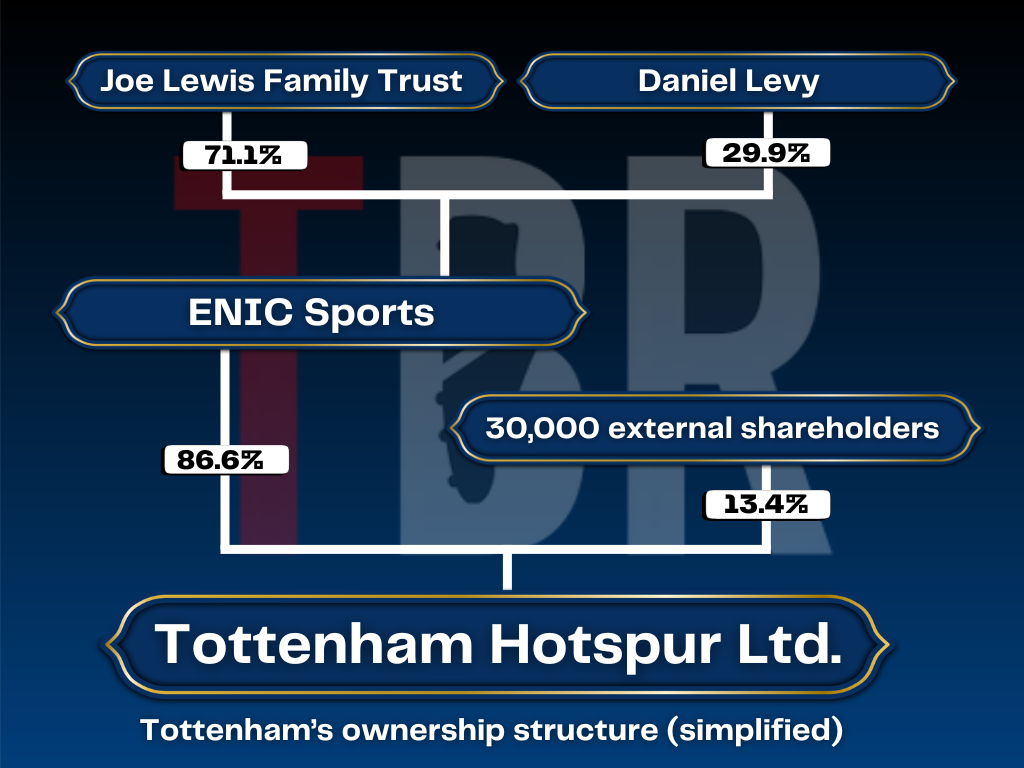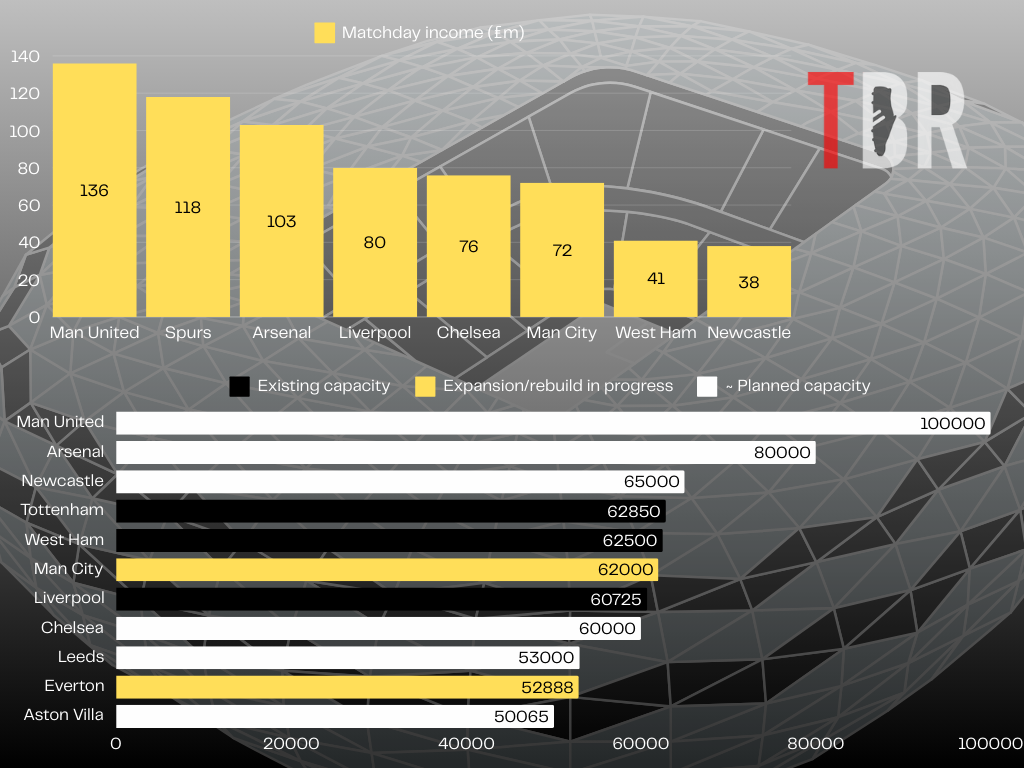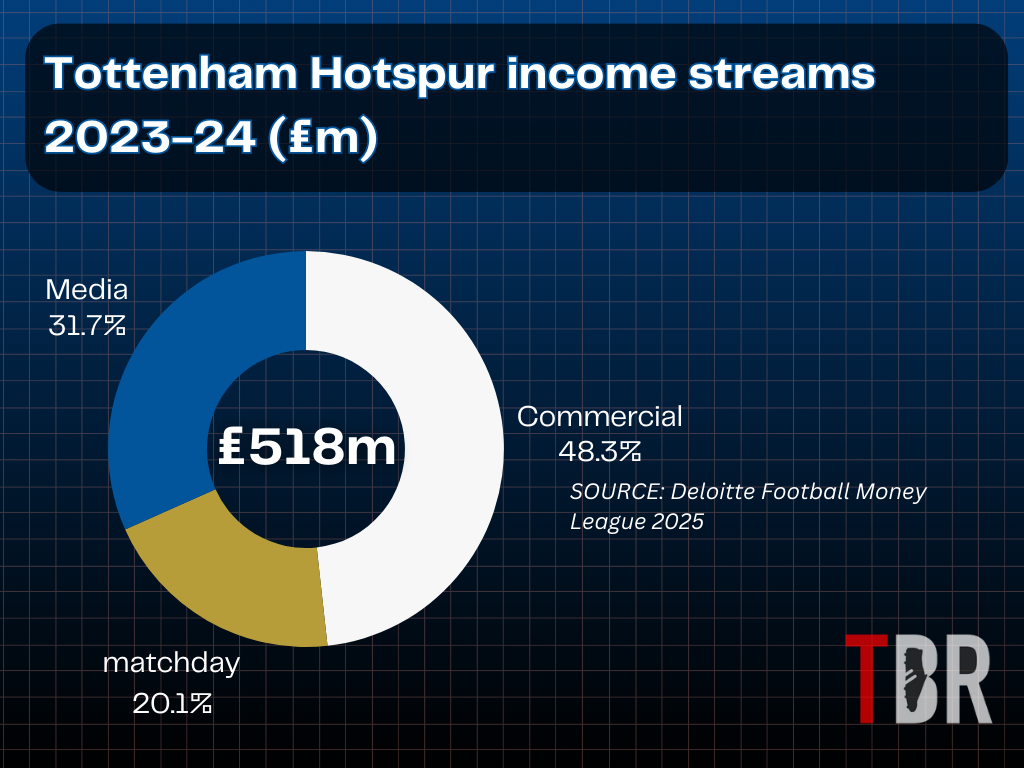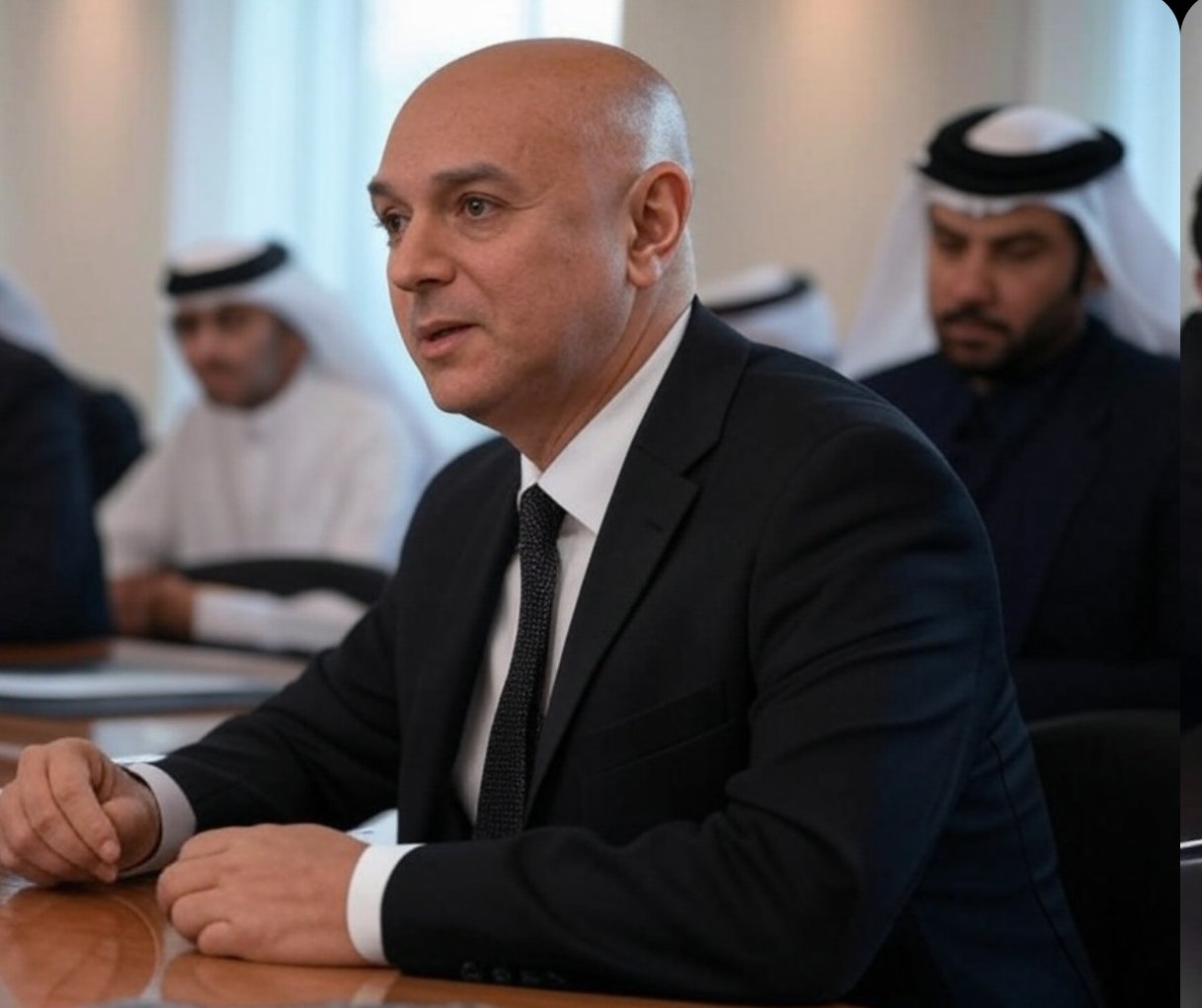Daniel Levy and ENIC’s commercial strategy for Tottenham Hotspur during the 2024-25 season has reignited discussions about the evolving identity of football clubs in the modern Premier League era.
The league, now a global powerhouse, has transformed from a sport steeped in history into a full-fledged industry, and few have capitalized on this transformation as effectively as Tottenham under Levy’s leadership.
Tottenham’s ownership structure, including Daniel Levy, ENIC, and the discretionary trust benefitting Joe Lewis’s family, highlights the intricate financial framework behind the club.
Currently, discussions are underway about a potential sale of ENIC’s stake in the club, with options ranging from a minority sale to a complete takeover. The owners have set Tottenham’s valuation at £3.75 billion, enlisting the Rothschild bank to identify offers matching this figure.

Considering ENIC’s initial investment of approximately £90 million since their acquisition process began in 2001, this valuation represents an astronomical return. With a nearly 20% annual compound growth rate, achieved with minimal personal financial input, the club’s value has soared.
The iconic Tottenham Hotspur Stadium, a £1 billion investment, played a significant role in driving this growth. Funded primarily through fixed-rate debt borne by the club rather than the owners, the stadium has rapidly become a self-sustaining asset.
Beyond hosting football matches, the stadium has evolved into a multi-functional venue, generating substantial income through concerts, corporate events, and NFL games.
Levy’s business acumen has leveraged Tottenham’s intellectual property and brand prestige, transforming the club into a commercial powerhouse.

This strategic shift, however, has not come without criticism. Many fans question whether the focus on branding and commercial ventures has overshadowed the club’s core identity as a football institution.
While increased revenue theoretically supports greater investment in the squad, the pace of spending on recruitment and retention lags behind revenue growth, fueling dissatisfaction among supporters.
The move from White Hart Lane to the modern stadium symbolized Tottenham’s evolution into what some fans now perceive as “Tottenham 2.0”—a corporation rather than a club.
Adding to the debate, Daniel Levy’s ambitions extend beyond football. His open interest in establishing an NFL franchise in North London exemplifies the club’s diversification strategy. Hosting NFL games and potentially launching a Tottenham-branded NFL team has sparked mixed reactions.
While London Mayor Sadiq Khan has expressed support for the initiative, and NFL insiders view an expansion franchise in North London as feasible by 2030, fans worry that this could further dilute the club’s football-centric identity.

Football finance expert Kieran Maguire has highlighted the implications of such a move. An NFL franchise would require a significant upfront investment, with expansion fees ranging between £1 billion and £2 billion.
Yet, from a business perspective, it promises lucrative returns. Tottenham’s ability to sell out its stadium for NFL games at premium ticket prices underscores the commercial potential. As Europe’s sole NFL franchise, Spurs would attract fans from across the continent, creating a unique revenue stream.
However, this diversification raises concerns about its impact on the Premier League and UEFA’s financial regulations. Revenue from non-football events like concerts and NFL games currently contributes to the club’s overall financial pot, benefiting its compliance with profit and sustainability rules.
Integrating an NFL franchise into this framework may require regulatory adjustments, potentially leading to disputes with other Premier League clubs. In a highly litigious environment, such conflicts could result in legal challenges, further complicating the venture.
For Tottenham fans, these developments amplify anxieties about the club’s priorities. The potential NFL expansion, coupled with existing commercial strategies, has led many to feel that football is becoming a secondary focus.

While Levy’s vision undeniably strengthens the club’s financial foundation, it risks alienating supporters who long for a return to footballing success and a deeper connection to the sport’s traditions.
The future of Tottenham Hotspur hinges on balancing its commercial ambitions with its football heritage. As discussions around ENIC’s potential sale progress and Levy’s NFL aspirations unfold, the club faces a critical juncture.
Success will depend on aligning financial growth with the values and expectations of its passionate fanbase. Whether Tottenham can achieve this equilibrium remains uncertain, but the stakes have never been higher for a club navigating the complexities of modern football.

